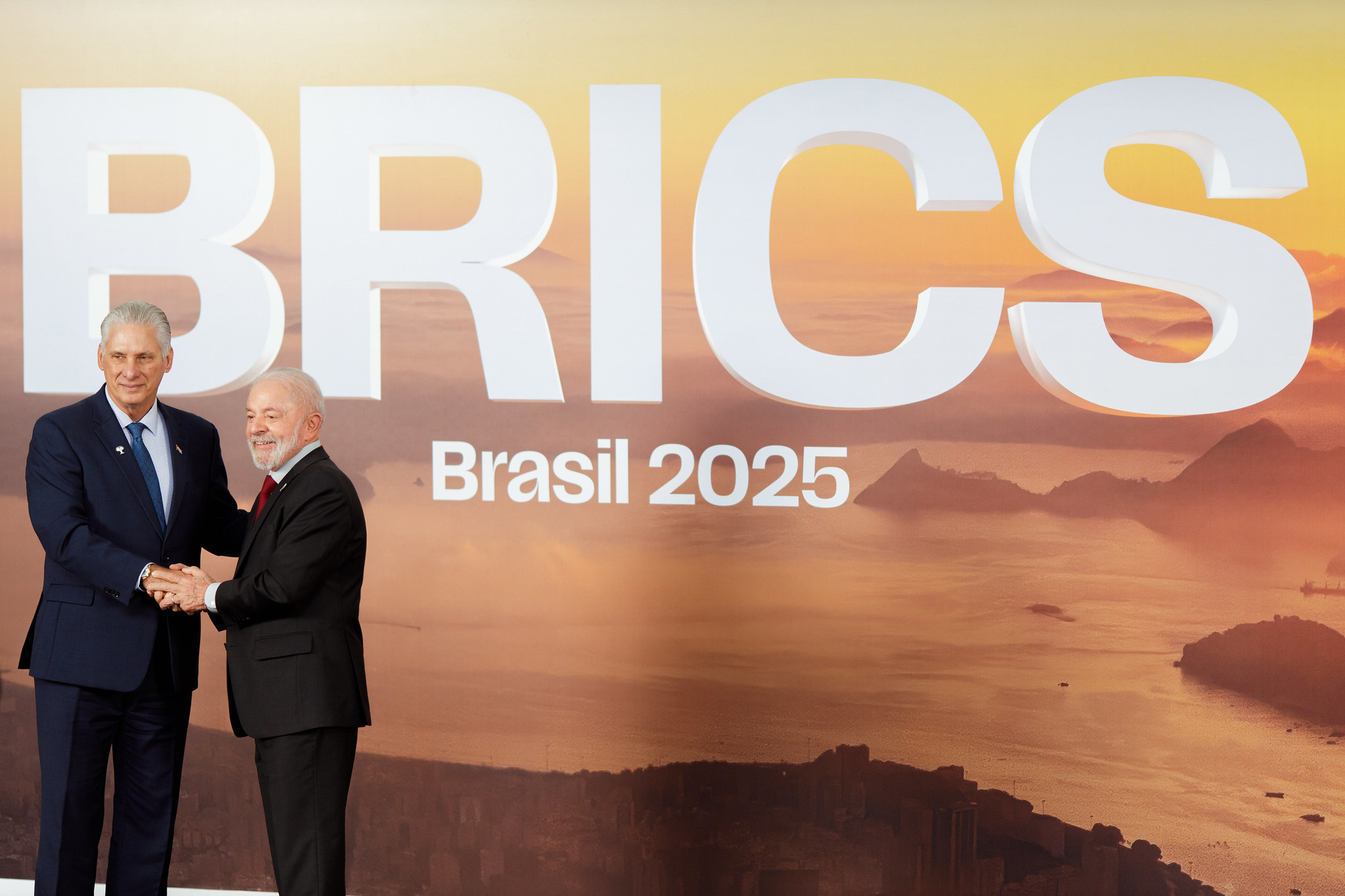BRICS: A Positive Contrast
This editorial appeared in the July 8, 2025 edition of La Jornada, Mexico’s premier leftist daily newspaper.
The BRICS summit, held Sunday and Monday in Rio de Janeiro, concluded yesterday with major initiatives to support the environment and the well-being of the most vulnerable. On the first point, the 11 member countries pledged to leverage their economic strength and innovative capacity to demonstrate that ambitious climate action can drive prosperity and a better future for all. On the second point, they agreed to establish the BRICS Alliance for the elimination of socially determined diseases, those that are associated with or proliferated by the living conditions of the population, particularly in the most deprived regions. This commitment also includes strengthening the World Health Organization, one of the many multilateral organizations sabotaged by US President Donald Trump for refusing to comply with his agenda of aggression and misinformation.
The host of the meeting, Brazilian President Luiz Inácio Lula da Silva, expanded on previously expressed criticisms of a world order that ignores humanity’s greatest pressing needs, from halting the genocide perpetrated by Israel against the Palestinian people to addressing the climate crisis and global warming beyond rhetoric. He denounced the fact that 60 companies are responsible for 80 percent of carbon dioxide emissions and that, in the last year alone, the world’s 65 largest banks pledged $869 billion to the fossil fuel sector.
These are matters of the utmost gravity, and in these, the BRICS can make a significant difference compared to the West. In this regard, the climate denialism of Trump and other representatives of the far right is well known, as is their determination to dismantle the already insufficient steps taken to stem the catastrophe. However, perhaps the shift taking place in the European Union has gone unnoticed. Environmentalist rhetoric is maintained, but in practice, measures to combat global warming have been slowed by the diversion of political and financial resources to the West’s all-out war against Russia, which is being fought by Ukrainian soldiers. Likewise, perhaps citizens, exposed to the propaganda of the major corporate media, are unaware of China’s impressive progress in this area: in 2019, the Asian giant was already investing three times as much as the United States and the European Union in renewable energy, and in just five years, it more than doubled its budget in this area. Over the same period, Washington and Brussels barely registered a 50 percent increase, meaning Beijing will invest twice as much in renewable energy as the other two combined by 2024. In fact, last year China installed more solar and wind generating capacity than the rest of the world combined.

The internal problems of each BRICS member, as well as the existing heterogeneity among them, cannot be ignored, but it’s encouraging that the major issues affecting ordinary people are being addressed in a forum that brings together representatives of more than half the world’s population. Above all, the agreements reached in Brazil represent a positive contrast to the xenophobic, imperialist messages of violent unilateralism and unbridled bellicosity that are broadcast daily in Washington, Brussels, London, and Tel Aviv.
From Mexico, we witness the paradox of the closeness of the national humanism promoted since the previous six-year term with the BRICS message, while at the same time the country is anchored to the the US sphere of influence. Although this peculiarity originates in the geographic proximity to the superpower, it should not be forgotten that the current level of integration, or dependence, depending on how you look at it, with our northern neighbor is the product of decisions made more than three decades ago by the architects of Mexican neoliberalism, articulated by the right in a key of servile submission to Washington.
Under current circumstances, embarking on a delinking from the North American economic bloc would cause immeasurable human suffering due to the total collapse of production and employment. However, Trumpism, with its uninhibited ability to blackmail even its closest partners and allies, is a reminder that the United States will never be a friend and that Mexico needs to look south if it wants to build a sustainable economy and guarantee its sovereignty in the long term.
-
Workers Party Claims Sheinbaum Electoral Reform Will Eliminate Party System
The socialist party’s leader recalled the democratic spaces that the left managed to conquer with the 1977 & 1996 reforms, a “fruit of countless struggles, repressions, imprisonments, disappearances and even armed uprisings.”
-
Anti-FIFA Challenge: Football Defends the Territory
Mexico City residents are organizing Anti-World Cup Days to protest water theft and gentrification that have accompanied preparations for the World Cup, put on by the corrupt, international criminal consortium known as FIFA.
-
Tridonex Strike in Matamoros to Start March 6th
1,300 workers are expected to strike, demanding the company fulfill its obligation to pay workers in full. Tridonex is owned by First Brands, the US autoparts corporation accused of massive fraud.




